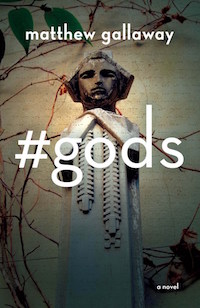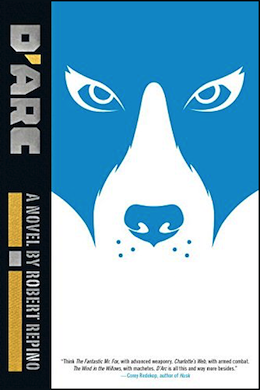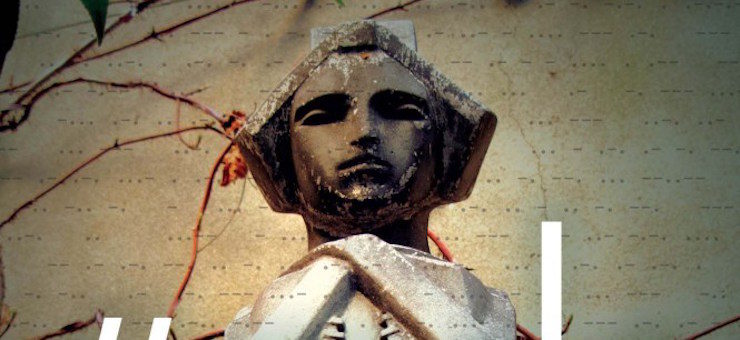Creating a fictional religion is one of the most difficult feats in literature. A religion that feels real requires a sense of place, a set of rituals and terms, and a shared history in which fact, legend, and politics meld together. In other words, it requires the elements of worldbuilding that make fiction—especially science fiction and fantasy—so difficult. Writers who venture into this territory run the risk of romanticizing religion or demonizing it; of oversimplifying religion or making it so nebulous that it loses meaning for both the characters and the reader. Successful examples include the Bene Gesserit of Dune, as well as the Earthseed faith from Parable of the Sower, an idea so potent that it has even inspired real life imitation.
The 21st century has given writers a new urgency in engaging and reimagining religion. The reasons are so ubiquitous that a list quickly becomes unwieldy: 9/11, the continued rise of the religious right, the war on science (specifically evolution and climate change), sex scandals, financial scandals, and the collision of mainstream religious institutions and various social justice movements. Looming in the background is an unprecedented demographic shift, evidenced in virtually every survey on the topic, in which an increasing number of people simply walk away from traditional religion. One thing that both the fiercest atheist and the most pious apologist can agree on is this: the traditional sources of religious authority have been badly compromised, in some cases eroded to almost nothing, leading many people to seek what could be called spiritual fulfillment elsewhere.
In the coming years, this search for meaning, unmoored from traditional religion, will continue to manifest itself in surprising ways. One of the most promising and challenging examples in recent memory is the ambitious novel #gods (Fiction Advocate, 2017) by Matthew Gallaway. [Full disclosure: For several years, Matthew, his editor, and I all worked at the same publishing company, and had many conversations about writing.] A follow-up to The Metropolis Case (Crown, 2010), #gods combines elements of mystery, mythology, and fantasy. In it, a homicide detective investigates a murder that echoes an incident from his youth, in which a strange, glowing creature abducted his sister. All of it appears to be connected to an ancient race of deities, with the Greek poet Orpheus as their progenitor. Only a handful of mortals can detect the lingering presence of these beings. Among the chosen few are a group of office workers, waiting out the last days before their company lays them off. Stranded in their meaningless cubicle world, they construct a new religion from scratch, one that serves not only as a rebuttal to the phony, soul-crushing ideologies of 21st-century America, but also as a testament to some of its greatest works of art (with Battlestar Galactica at the top of the list, of course). Rather than emphasizing belief, doctrine, and ritual, their new religion is one of action, risk, love, and exploration—a transformation that promises to save the world in this life rather than the next.
#gods thus becomes a manifesto of faith that is rooted in and inspired by an increasingly post-religious world. At the center of this creed is a dissection—or exegesis—of modern homosexuality. How gay is #gods? Well, it’s gay enough for virtually every reviewer to feel obligated to warn inform readers of what’s in store. Almost everyone in the book gets to have sex, almost like a gay version of the Bechdel Test. Characters even refer to their sexual awakening as an initiation into “the Faith.” But this is more than a mere parroting of religious language. Instead, gay sex—depicted with a precision that manages to avoid feeling gratuitous or clinical—becomes both a political act and a creative one, the ultimate expression of humanistic values. Through sex, love, and some risk-taking, the characters transcend their previous lives, push their boundaries, and become godlike.
Here, Gallaway follows in the footsteps of other writers who have depicted sex as an act of resistance against an omnipresent, tyrannical authority. In perhaps the most well-known example, Winston and Julia’s affair in 1984 constitutes a direct violation of the established order. In Kurt Vonnegut’s Mother Night, the protagonist Campbell forms what he calls a “Nation of Two” with his wife Helga. In all of these cases, it’s almost as if apostasy becomes a religion unto itself, a beautiful act of affirmation, the birth of a new identity.
Very often, a fictional religion hinges on its stance toward sex. Repressive caricatures of religion, such as the one found in The Handmaid’s Tale, are often notoriously authoritarian with regard to the human body. In contrast, belief systems that value gender equality and sex for pleasure are often depicted as not only healthier, but somehow more authentic. This, however, brings us back to the issue of authority. Who, exactly, gets to decide what is authentic or not? In both the real world and in fiction, it is often a tiny handful of disciples who proclaim that they have figured out the “correct” interpretation, and that they speak for the true faith. This is a problem for both the “good” guys and the “bad”, for both the altruistic founders of the Earthseed cult and the Gilead shock troops of The Handmaid’s Tale. It is a confounding grey area crying out for more honest exploration in the coming years.
 Perhaps a big gay novel with fantastical elements is in the best position to critique religion in the current era, which for gays has been marked by both increasing visibility and backlash. When one considers how the LGBT community has been treated by most denominations, it’s no wonder that this group is among the most disproportionately secularized. Just this past week, an influential assembly of evangelical leaders doubled down on their anti-LGBT stance in the Nashville Statement, a document affirming “traditional marriage,” among other culture war issues. Despite all of this, many who reject religion do not completely renounce faith, and Gallaway’s novel shows how cherrypicking the best elements of a religious tradition can be a cathartic act of independence and creativity. For such people, “authenticity” becomes a profound personal experience rather than an act of obedience to a set of rules.
Perhaps a big gay novel with fantastical elements is in the best position to critique religion in the current era, which for gays has been marked by both increasing visibility and backlash. When one considers how the LGBT community has been treated by most denominations, it’s no wonder that this group is among the most disproportionately secularized. Just this past week, an influential assembly of evangelical leaders doubled down on their anti-LGBT stance in the Nashville Statement, a document affirming “traditional marriage,” among other culture war issues. Despite all of this, many who reject religion do not completely renounce faith, and Gallaway’s novel shows how cherrypicking the best elements of a religious tradition can be a cathartic act of independence and creativity. For such people, “authenticity” becomes a profound personal experience rather than an act of obedience to a set of rules.
This transformation of spirituality (if it can still be called that) will only get weirder and bolder as more people pull away from traditional centers of religion, and as more people rebel against the perceived connections between mainstream religion and our current political climate. 2017 has already witnessed an unapologetic adaptation of The Handmaid’s Tale, and will feature another novel by arch-heathen Philip Pullman. #gods may be a harbinger of previously unheard voices on the subject, lighting the way for pilgrims who are embarking on new journeys of discovery.
 Robert Repino (@Repino1) grew up in Drexel Hill, Pennsylvania. After serving in the Peace Corps in Grenada, he earned an MFA in Creative Writing at Emerson College. He works as an editor for Oxford University Press and has taught for the Gotham Writers Workshop. He is the author of Mort(e) (Soho Press, 2015), Leap High Yahoo (Amazon Kindle Singles, 2015), Culdesac (Soho Press), and D’Arc—book three in the War With No Name series, now available from Soho Press.
Robert Repino (@Repino1) grew up in Drexel Hill, Pennsylvania. After serving in the Peace Corps in Grenada, he earned an MFA in Creative Writing at Emerson College. He works as an editor for Oxford University Press and has taught for the Gotham Writers Workshop. He is the author of Mort(e) (Soho Press, 2015), Leap High Yahoo (Amazon Kindle Singles, 2015), Culdesac (Soho Press), and D’Arc—book three in the War With No Name series, now available from Soho Press.










